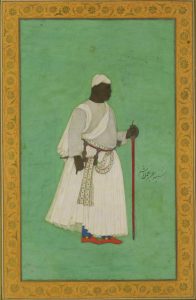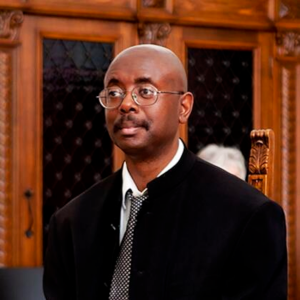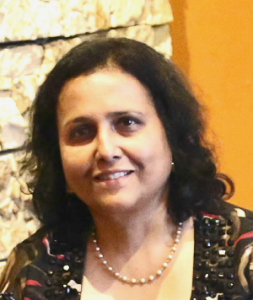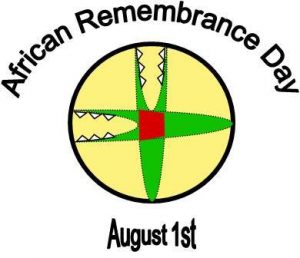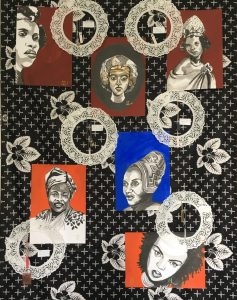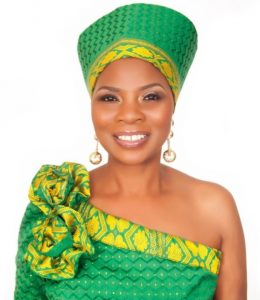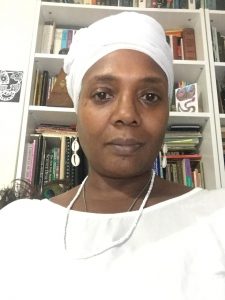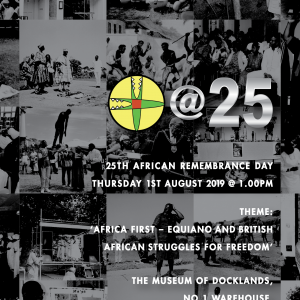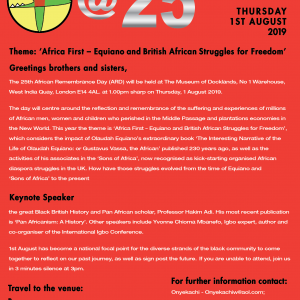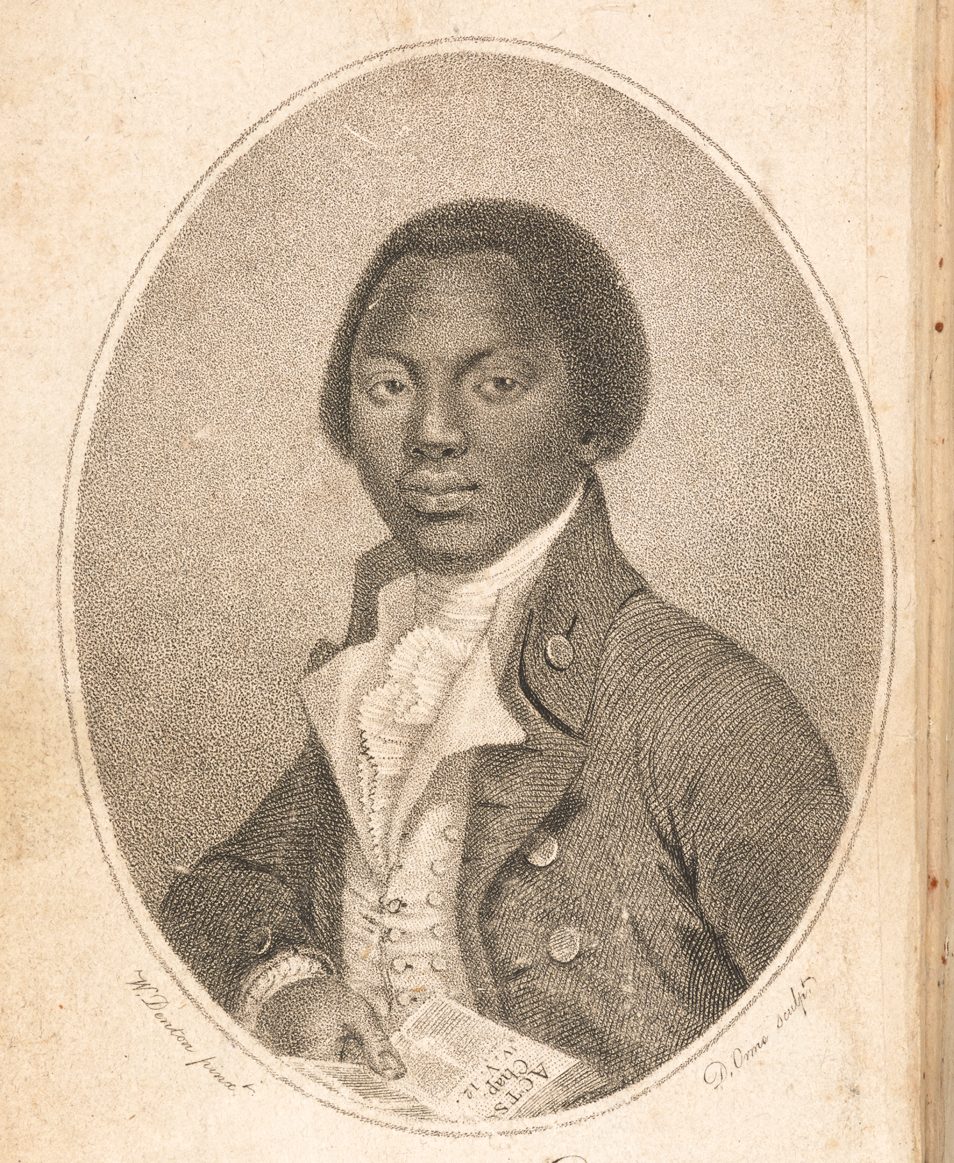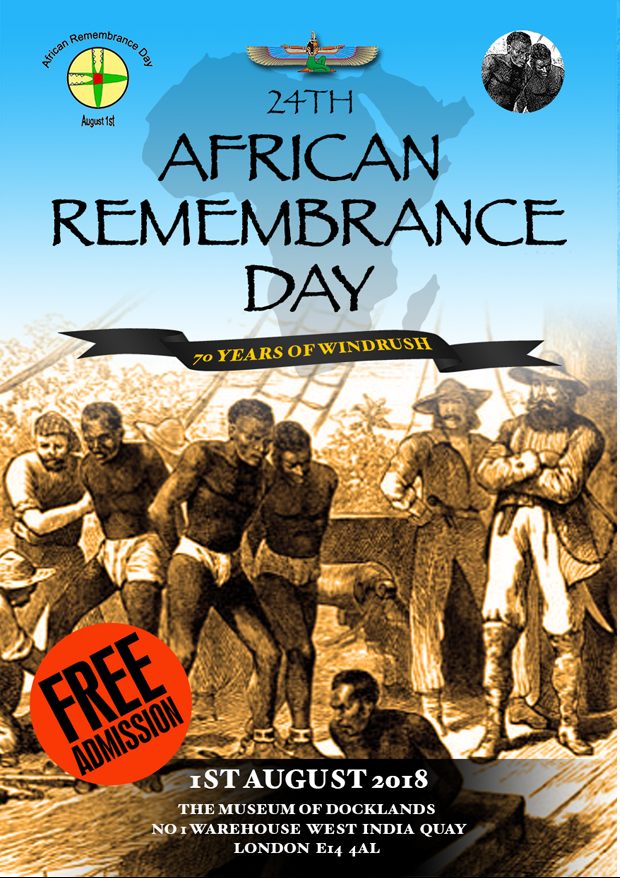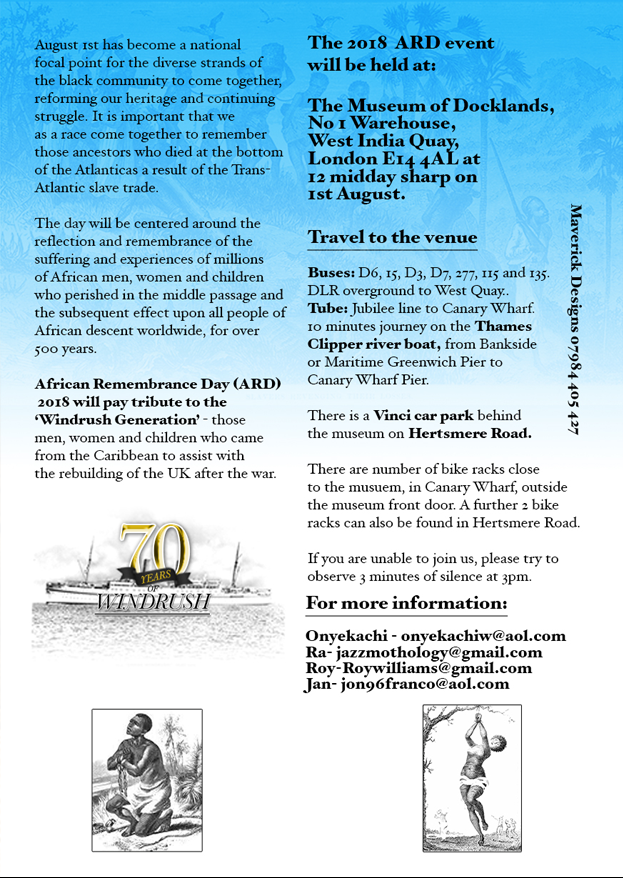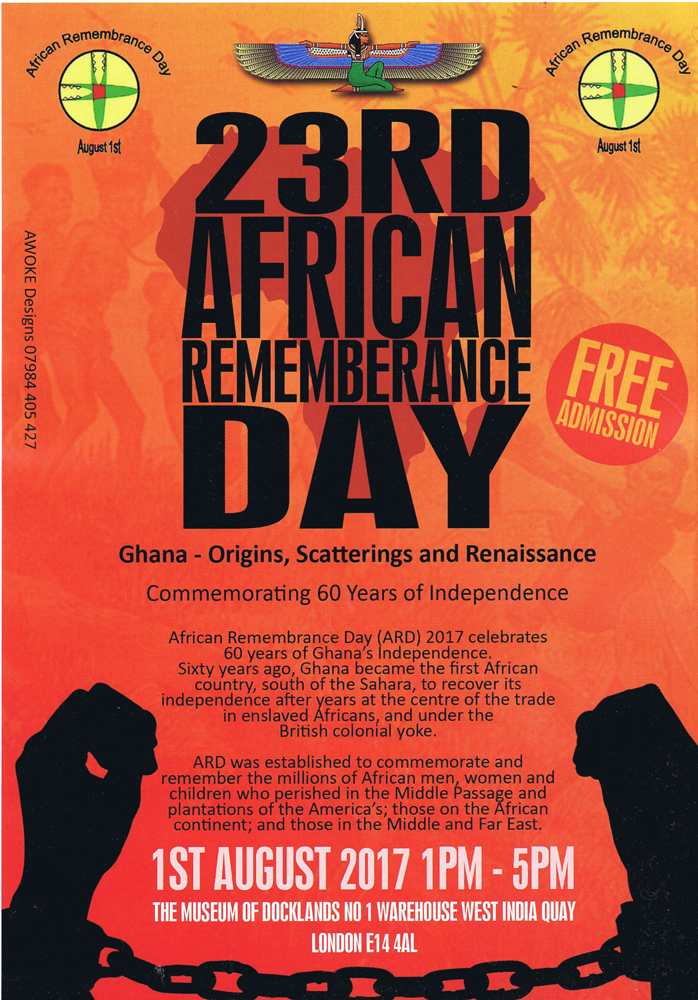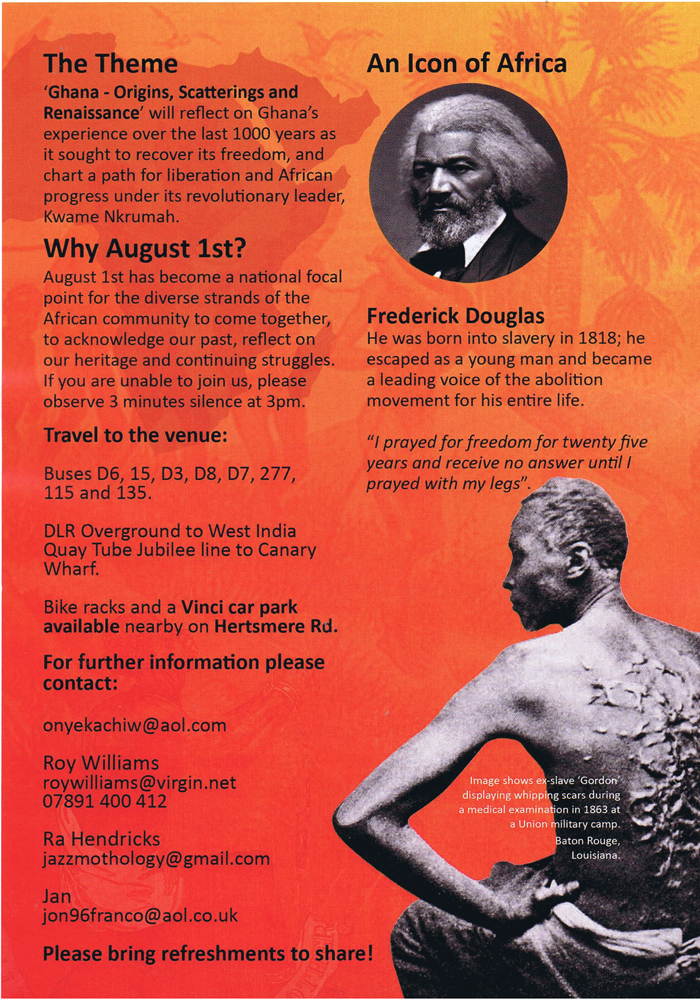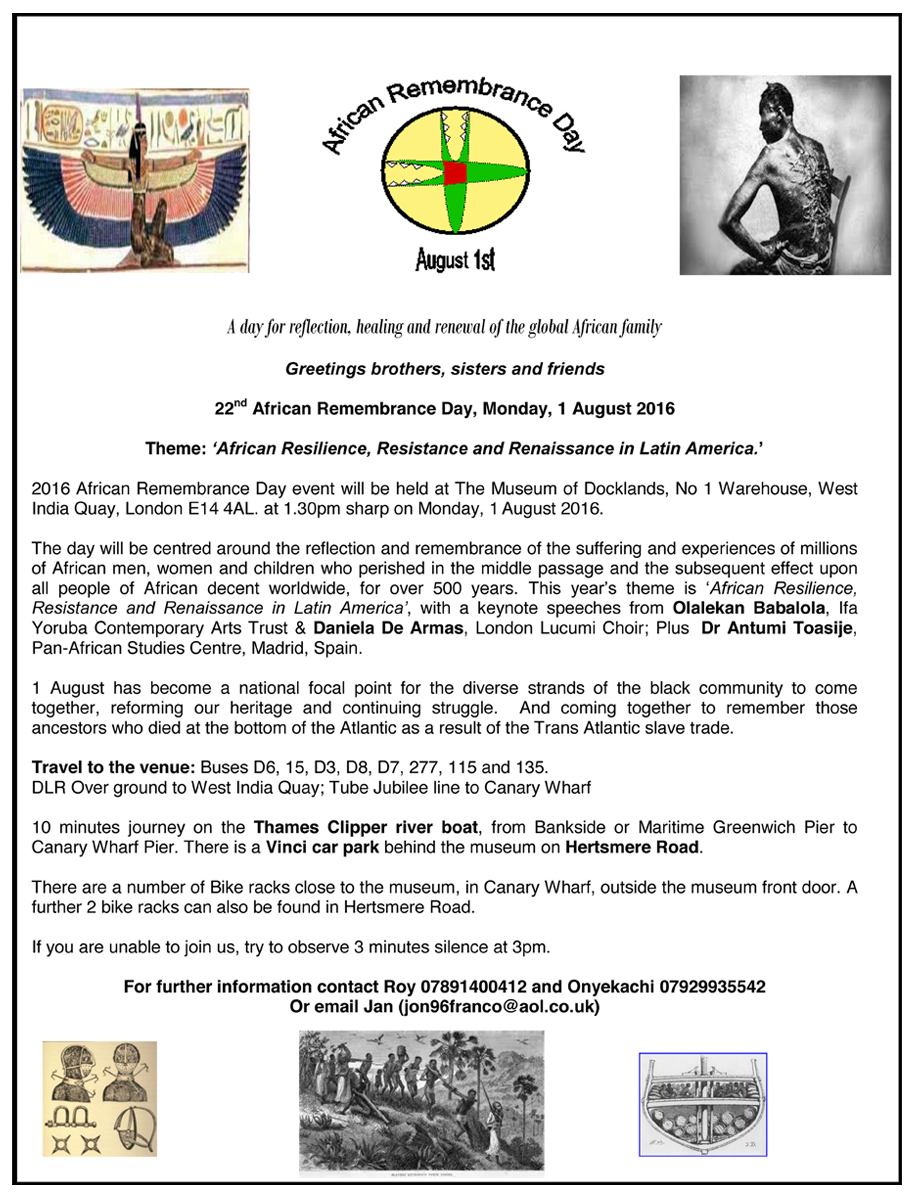ARD commemorates the experiences and suffering of millions of African men, women and children who perished in the Middle Passage and plantations economies in the New World, as well as on the African continent and Far East. It provides an opportunity to reflect on the journey of their descendants in the fight for justice and equality. It is thus a day for reflection, healing and renewal of the global African family.
The 29th African Remembrance Day (ARD) takes place between 13.30pm – 16..00pm on Tuesday, 1 August 2023 at Museum of London, Docklands. 3 minutes of silence is marked at 3.00 pm – a minute each for the victims in the Americas, the African continent and the Middle /Far East.
This year’s event, themed ‘Apologies and Atonement for African Slavery’, features two keynote addresses by Priscellia Pyhia Robinson (Birthmark of Africa) and John Dower ( from the Trevelyan family) responding to the increasing appetite for apologies.
Background
Apologies, atonement and reparations for slavery are currently high on the agenda. On 19 December 2022, Prime Minister Mark Rutte ushered in a historic turning point, as the Netherlands became the first major European national government to formally apologize for their role enslaving Africans, as well as to commit over £200 million of government funds and resources toward remembrance and restoration work in the former Dutch enslaved colonies. Prime Minister Rutte’s apology (see picture above) comes after city governments, including Amsterdam, The Hague, and Utrecht, issued formal apologies for their own role in the system of trafficking and enslavement of African women, men and children.
Other institutions in the UK such as the Church of England and even individual families, such as the Trevelyan family, have also recently offered formal apologies and reparations.
The growing apologies and instances of reparations are not unique – coming on the heels of longstanding demands from people of African descent over the last 500 years for justice and accountability. This year ARD reflects on the old and new discourses around apologies and atonement, taking stock of this moment of growing debate and movement on the issue, and examining the multi-dimensional aspects associated with apologies and atonement.
For more information contact us: africanremembrance@gmail.com
CONTRIBUTOR BIOGS
PRISCELLIA PYHIA ROBINSON
Priscellia Pyhia Robinson is the President and Director of Birthmark of Africa. She is the head researcher in the disciplines of Law, Criminology and Sociology. Her specialist areas of research is Human Rights, Environmental, Social, and Governance (ESG), Climate Change, Environmental Law, Race Disparities, Reparative Justice, Social Justice, Equality, Diversity and Inclusion, the Windrush Generation, the Ongoing Legacy of the Transatlantic Slave Trade and the effects of Colonialism within contemporary times.
She is a qualified Barrister of England and Wales and she can also be instructed upon amicus curiae briefs at International Courts and Tribunals. She is one of twelve selected Equality, Diversity and Inclusion panel trainers upon the Bar Race Working Group of the Bar Council of England and Wales. She has been bestowed with the awarded title and position as United Nations Fellow by the Office of the United Nations High Commissioner for Human Rights under the International Decade for People of African Descent Fellowship programme. Priscellia Pyhia Robinson is also undertaking her Ph.D. at the University of West London upon the ongoing legacy of the transatlantic slave trade, the Windrush generation and reparative justice.
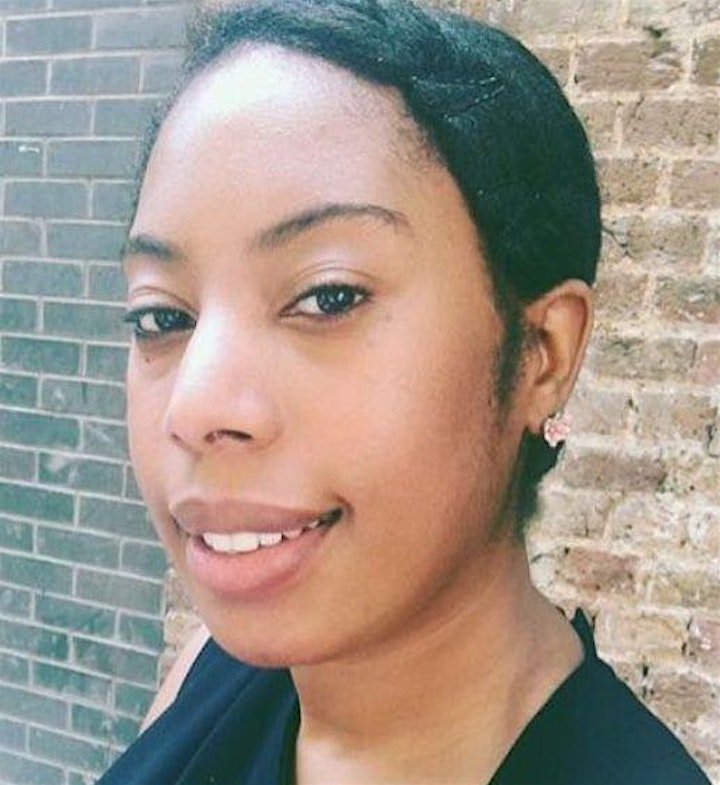
JOHN DOWER
John Dower is a director in film, television and interactivity, and a Trustee of the Directors Charitable Foundation. Alongside other members of the Trevelyan family, he recently travelled to Grenada to deliver a public apology for their ancestors’ ownership of more than 1,000 enslaved Africans in the country . In its apology, the family also urged the British Government to enter into negotiations with Caribbean governments to make appropriate reparations through CARICOM.

KESHENIWA AGHAJI
Opening prayers will be provided by Kesheniwa Aghaji , an Olorisa (Priestess) of Orisa Orisanla in the Yoruba Ifa tradition offering ceremonies for clearing, empowerment, healing, libation. She is focused on the unfettering for personal sovereignty. She is also an artist of spiritually guided spontaneous artworks that emit a halo, an illumination – light reflecting from the drawing on the line.

